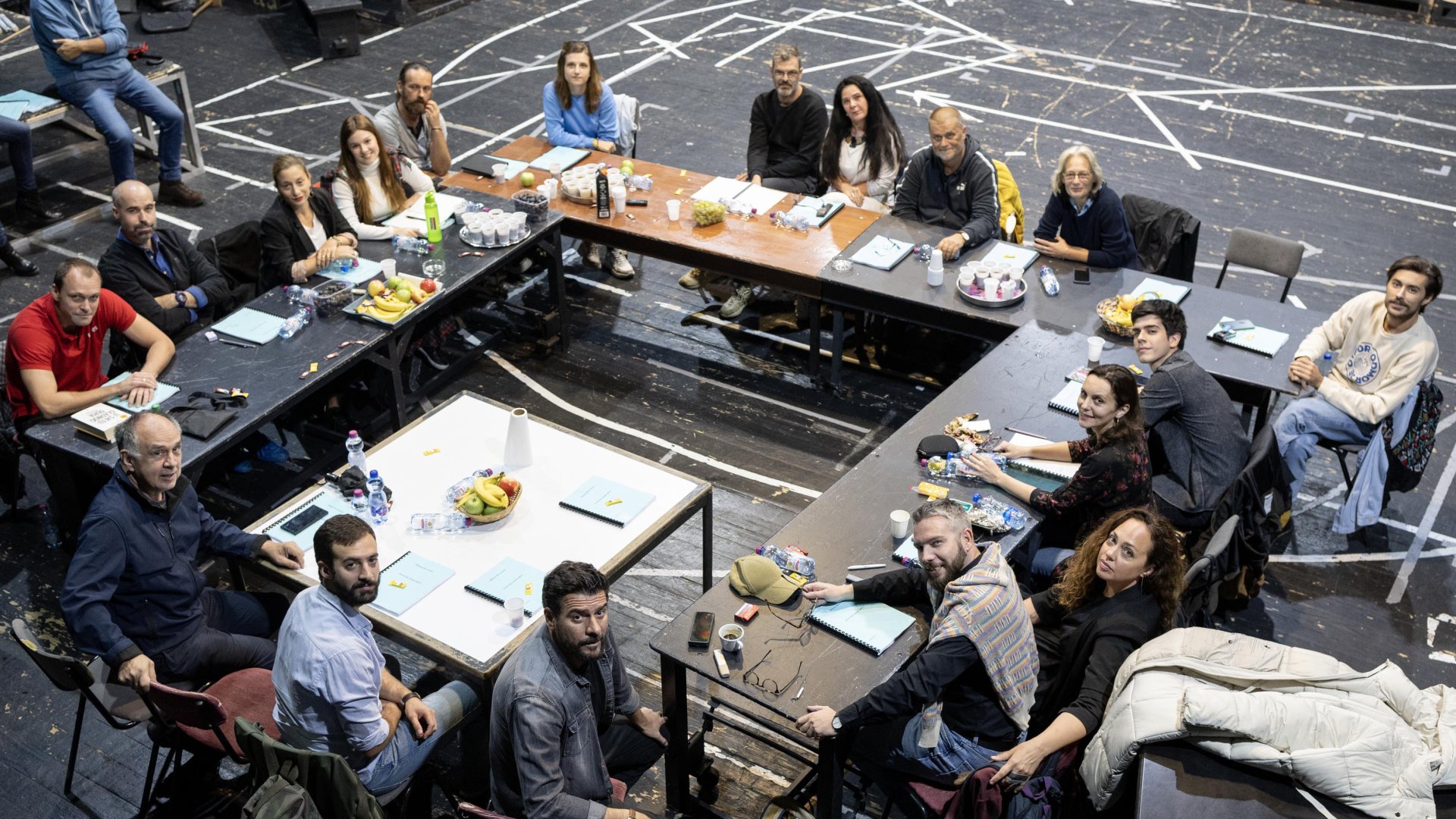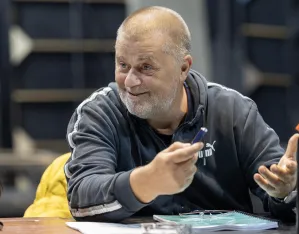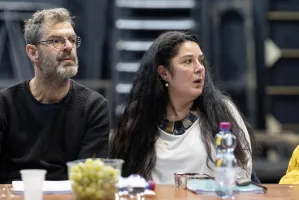Rehearsals of the Play "The Master and Margarita" Directed by Andraš Urban Have Started

17 September 2024
Rehearsals of the Play "The Master and Margarita", based on the famous novel by Mikhail Bulgakov, in which the celebrated Russian writer addresses some essential philosophical, cultural and political issues, particularly the relationship between artists and authorities, and the belief in a certain ideology, have started at the National Theatre in Belgrade.
The premiere is scheduled for the first half of November on the Main Stage.
The dramatization was done by Kata Gyarmati, and directing is entrusted to Andraš Urban, a theatre director with a distinctive creative mark whose aesthetics is based on constant questioning of the reality we live in, but also of his own attitudes about it.
“Manuscripts don't burn. Manuscripts burn, like plays, like everything a man does, it all burns. “The Master and Margarita” is a work where you can hardly avoid thinking about your existence in a certain historical moment, here and now, and on the other hand, it makes you focus on some important, deeper issues of human existence. If the human part is worth mentioning at all, if it makes any sense at all. Love also burns at the stake”, the director says for whom this will be the third staging of a play at the National Theatre, after Sterija's “The Patriots” (2015) and Nušić's “A Suspicious Person” (2016).
Costume designer Bojana Nikitović, composer Irena Popović, choreographer Gergye Krisztián and Ljiljana Mrkić Popović (stage speech), together with Urban and Kata Gyarmati, are the members of the artistic team for this theatre work in which the roles are played by Igor Đorđević, Nada Šargin, Aleksandar Vučković, Vanja Ejdus, Pavle Jerinić, Vanja Milačić, Dragan Sekulić, Julija Petković, Jelena Blagojević, Andrej Nježić, Bojan Krivokapić and Nedim Nezirović.
“The Master and Margarita” is certainly one of the most provocative novels in world literature; it has an unusual form, it is characterized by mysteriousness on various levels in which Bulgakov, in an interrupted sequence, through 32 chapters, describes the events in the 1930s Moscow, as well as the events that the title character, the Master, described in his novel about Pilate's trial and the martyrdom of Jesus. The events in the Russian capital are depicted as a fantastic story about the arrival of the devil Woland in that community where the annual demon ball is to be held...
Combining elements of modern satire, fantastic, grotesque and intellectual prose, the novel seeks answers to the great problems of today. Bulgakov does not write in formulas, he forces his reader to think and independently recognise deeper moral and social connections.
Bulgakov worked on the novel “The Master and Margarita” for almost twelve years: from 1928 to February 1940. In the midst of the increasingly rigid Stalinist cultural policy, he also kept his work on the novel a secret to such extent that no one outside his closest circle of friends knew about it - except for the agents and informants who swarmed around him. In 1930, after his play “The Cabal of Hypocrites” was banned, he destroyed a part of the manuscript: “I threw my novel about the devil into the stove”, he wrote in a letter to the Soviet authorities. Three years later, after learning about the arrest of his friend, the playwright Nikolai Erdman, he again burned a part of the novel. In less than a year, he rewrote it from memory - as a testimony of the words that have become a catchphrase based on the novel: “Manuscripts don't burn!”
This will be only the second production of “The Master and Margarita” at the National Theatre in Belgrade; for now, the first and only one was directed by Aleksandar Saša Petrović, and it premiered on April 6, 1982
Similar news
Rehearsals of Željko Hubač's Play "I Dreamed That I Woke Up" Directed by Dino Mustafić Have Started
Rehearsals of Molière's “The Imaginary Invalid” Directed by Nikola Zavišić Started
Rehearsals Started of Nušić's Comedy "Mister Dollar" Directed by Miloš Lolić
Rehearsals of the Play "Millennium in Belgrade" Started at the National Theatre in Belgrade



